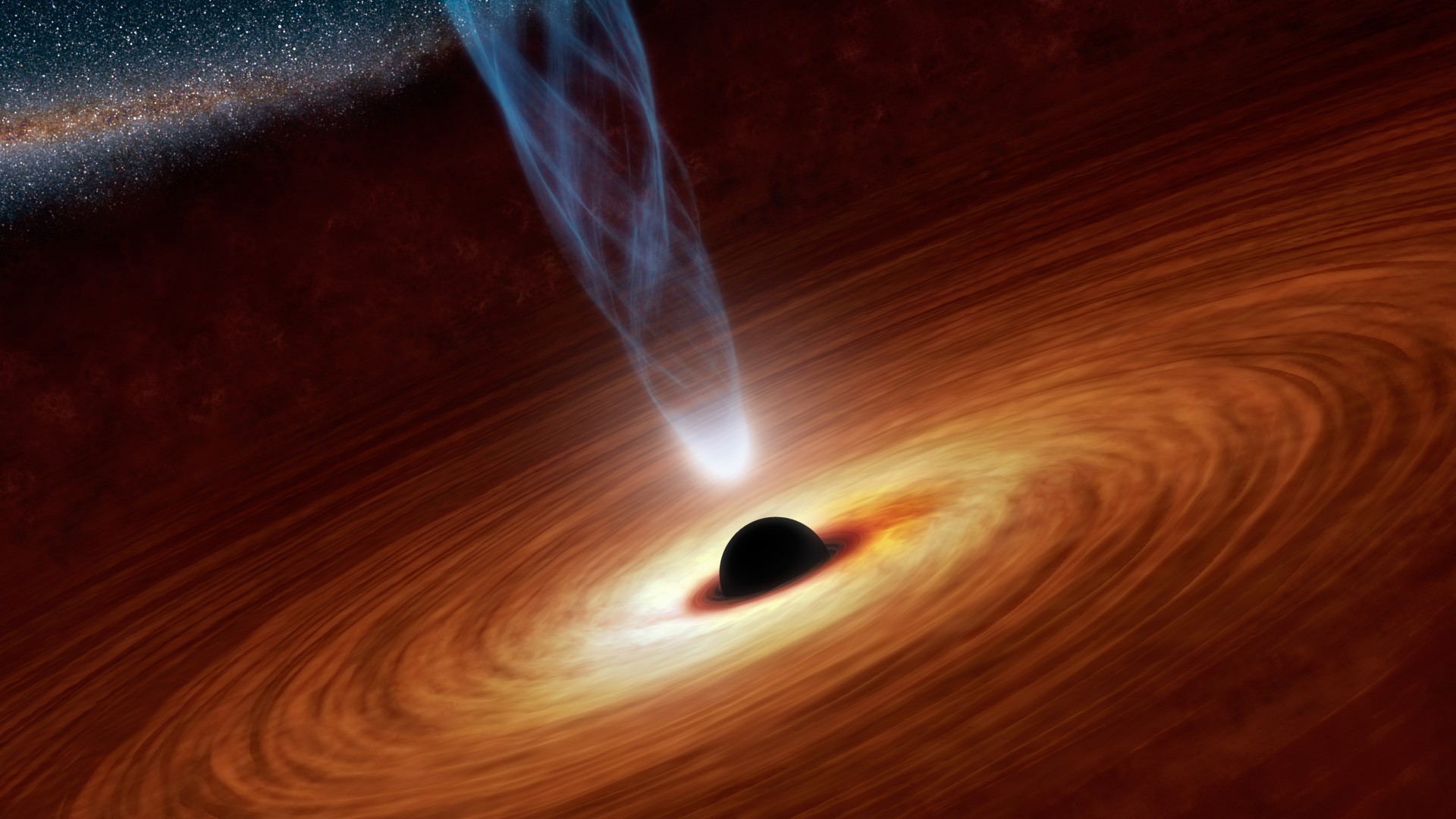Monster black holes could be the source of dark energy driving the accelerating expansion of the universe, study suggests
The expansion of black holes alongside the cosmos could be explained if the cosmic monsters contained dark energy in their cores, the driving force behind the universe's growth.

Supermassive black holes could be the engines driving the expansion of the universe, according to research that proposes a solution to "one of the biggest problems in cosmology."
By comparing supermassive black holes across nine billion years of cosmic history, astronomers have discovered a clue that the ravenous behemoths lurking at the hearts of most large galaxies may be the source of dark energy — the mysterious force that makes up 68% of the known universe and causes its accelerating expansion. The researchers published their findings Feb 2. and Feb 15. in two papers in The Astrophysical Journal and The Astrophysical Journal Letters.
"If the theory holds, then this is going to revolutionise the whole of cosmology, because at last we've got a solution for the origin of dark energy that's been perplexing cosmologists and theoretical physicists for more than 20 years," co-author Chris Pearson, an astrophysicist at the Rutherford Appleton Laboratory (RAL) in the U.K. said in a statement.
Related: Did a dark energy discovery just prove Einstein wrong? Not quite.
Dark energy revealed
Over the last century, astronomers discovered that the universe was expanding at an ever faster pace. This was surprising given that, acting on its own, gravity should be expected to slowly crumple the cosmos together in an event known as the Big Crunch. To explain the discrepancy, scientists proposed that something powerful enough to counteract gravity must exist, and was pushing everything in the universe further apart. They named that something dark energy.
But for dark energy to reverse a cosmic collapse, it would have to be present in such enormous quantities that it makes up the vast majority of the universe. Yet, until now, it has been nowhere to be seen.
Now, the new studies have seemingly found a clue as to how the hidden phenomenon works. Both teams compared the masses of black holes at the centers of two sets of galaxies. One group was young and remote, with light that arrived to us from nine billion years in the past, while a nearer and older group sits only some millions of light-years away. The astronomers found that throughout the universe giant black holes had ballooned to be seven to 20 times larger than they once were — a monstrous growth that couldn't be explained simply by black holes devouring stars or colliding and combining with each other.
Get the world’s most fascinating discoveries delivered straight to your inbox.
Instead, the researchers propose that black holes are growing in lockstep with the universe — overcoming the star-crushing, light-capturing forces at their cores with a hypothetical type of dark energy called vacuum energy that makes them expand ever outwards. And, somehow, they drag the entire fabric of the cosmos out with them.
"This is a really surprising result. We started off looking at how black holes grow over time, and may have found the answer to one of the biggest problems in cosmology," co-author Dave Clements, an astrophysicist at Imperial College London, said in the statement.
If expansionary dark energy does lurk inside the cores of black holes, it will solve two long-standing puzzles faced by Einstein’s general theory of relativity, which describes how gravity affects the universe at large scales. Firstly, it would explain how the universe doesn’t collapse due to the large and ubiquitous force of gravitational attraction and, secondly, it would do away with the need for singularities (infinitesimal points where the laws of physics break down) to explain the workings of black holes' dark hearts.
"We're really saying two things at once: that there's evidence the typical black hole solutions don't work for you on a long, long timescale, and we have the first proposed astrophysical source for dark energy," first-author Duncan Farrah, an astronomer at the University of Hawaii, said in the statement. "What that means, though, is not that other people haven't proposed sources for dark energy, but this is the first observational paper where we're not adding anything new to the universe as a source for dark energy: black holes in Einstein's theory of gravity are the dark energy.''
To confirm their theory, astrophysicists will need to ensure that nothing else is contributing to the black holes' mysterious growth by making even more detailed observations of their masses throughout time, while also closely tracking the increase to these masses with the expansion of the universe.

Ben Turner is a U.K. based staff writer at Live Science. He covers physics and astronomy, among other topics like tech and climate change. He graduated from University College London with a degree in particle physics before training as a journalist. When he's not writing, Ben enjoys reading literature, playing the guitar and embarrassing himself with chess.
